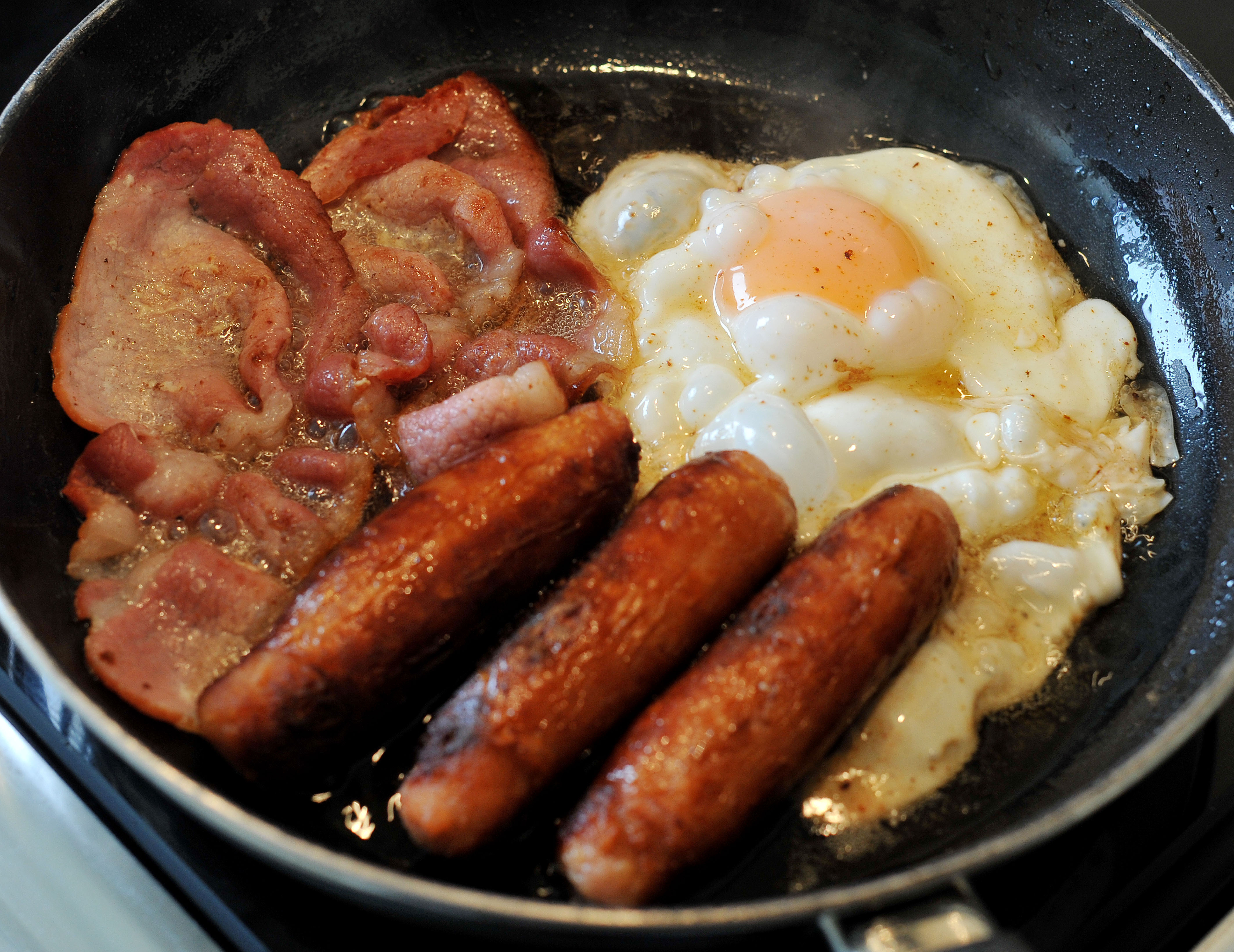Warning over ‘shocking’ levels of salt found in sausages
Some popular branded sausages still contain “shocking” amounts of salt, with vegetarian options just as unhealthy, a survey has found.
A sausage sandwich breakfast could involve eating almost two-thirds of an adult’s maximum daily recommended salt intake, Consensus Action on Salt and Health (Cash) said.
The health campaign group said many companies had failed to reduce salt in their products with just three weeks left to reach 2017 targets set by Public Health England.
The British public eat more than 175,000 tonnes of sausages each year, which amounts to 61g of salt per person, the equivalent of 134 packets of ready salted crisps.
The average salt content of sausages is 1.3g per 100g, a figure that has remained relatively unchanged since 2011 and exceeded salt reduction targets at the time, Cash said.

The British public eat more than 175,000 tonnes of sausages each year
Cash is calling for the setting of new mandatory salt targets, arguing that the food industry has “failed to protect the public’s health voluntarily”.
The research found significant variation in salt levels across all sausages, from the highest in Richmond’s Skinless Pork Sausages at 2.3g per 100g to the lowest in The Co-operative’s Irresistible Sweet Chilli Sausages at 0.75g per 100g.
The survey also found large variations within supermarket own-brand sausages, with Asda’s Extra Special Bacon & Maple Syrup option containing 1.1g of salt per sausage, more than double the same retailer’s Extra Special Lincolnshire Pork Sausages.
Cash said the figures demonstrated that it was possible for all manufacturers to make sausages with less salt.
Meanwhile, Quorn’s vegetarian Best of British Sausages contained 1.9g of salt per 100g, or 2.2g in two sausages, which is more than the salt content of half a Pizza Hut Margherita pizza.
Some 85% of meat sausages surveyed by Cash were also high in saturates. Sainsbury’s Taste The Difference Toulouse Inspired British Pork Sausages contained 12.2g of saturated fat per two sausages, more than half the recommended daily maximum intake of saturated fat for women.
Some of the biggest brands, including Richmond, Wall’s and Iceland, failed to provide traffic light labelling on their packaging, and used a portion size as one sausage, which Cash said was “completely unrealistic”.
Graham MacGregor, professor of cardiovascular medicine at Queen Mary University of London, and chairman of Cash, said: “The UK has led the world on salt reduction but this survey clearly shows that many companies are not co-operating with the current voluntary policy.
“Public Health England, who is now responsible, must get tough on those companies not complying and set new mandatory targets to be achieved by 2020 without further delay.
“Otherwise, thousands of people will die from unnecessary strokes and heart attacks every year. Salt reduction is the most cost-effective and most successful public health preventive measure made to date, and it is a national tragedy that it is being allowed to fail.”

The salt content in sausages is causing concern
A spokeswoman for Quorn said: “Quorn produces a range of sausages, with its bestselling Quorn Sausages being low in salt and highlighted on the front of pack.
“The salt content is 1.2g per 100g for 336g of Quorn frozen sausages and 1.1g per 100g for 250g Quorn chilled sausages, making both options a healthy source of protein.
“The range featured by Cash is Quorn’s Best of British Sausages which offers slightly more indulgent sausages. Whilst they are higher in salt, as clearly marked on pack, they are still low in saturated fat.”
Dr Alison Tedstone, Public Health England’s chief nutritionist, said: “Our salt consumption has decreased over the last decade, a loaf of bread has 40% less than it used to.
“However, some products are still too high in salt and we know this can be reduced further.
“We’ve been very clear with the food industry on the importance of meeting the 2017 salt targets. We’ll report on their progress next year and will provide advice to Government on the next steps.”
The Press Association
Latest posts by The Press Association (see all)
- 5 new books to read this week - November 23, 2024
- 3 easy Mary Berry recipes to make this season - November 22, 2024
- In Pictures: Party stalwart kept New Labour in touch with traditional supporters - November 21, 2024
- 6 easy indoor exercises to try this winter – and why they are good for you - November 19, 2024
- Martin Clunes: I can’t afford to retire – I’ve got too many horses - November 19, 2024





















